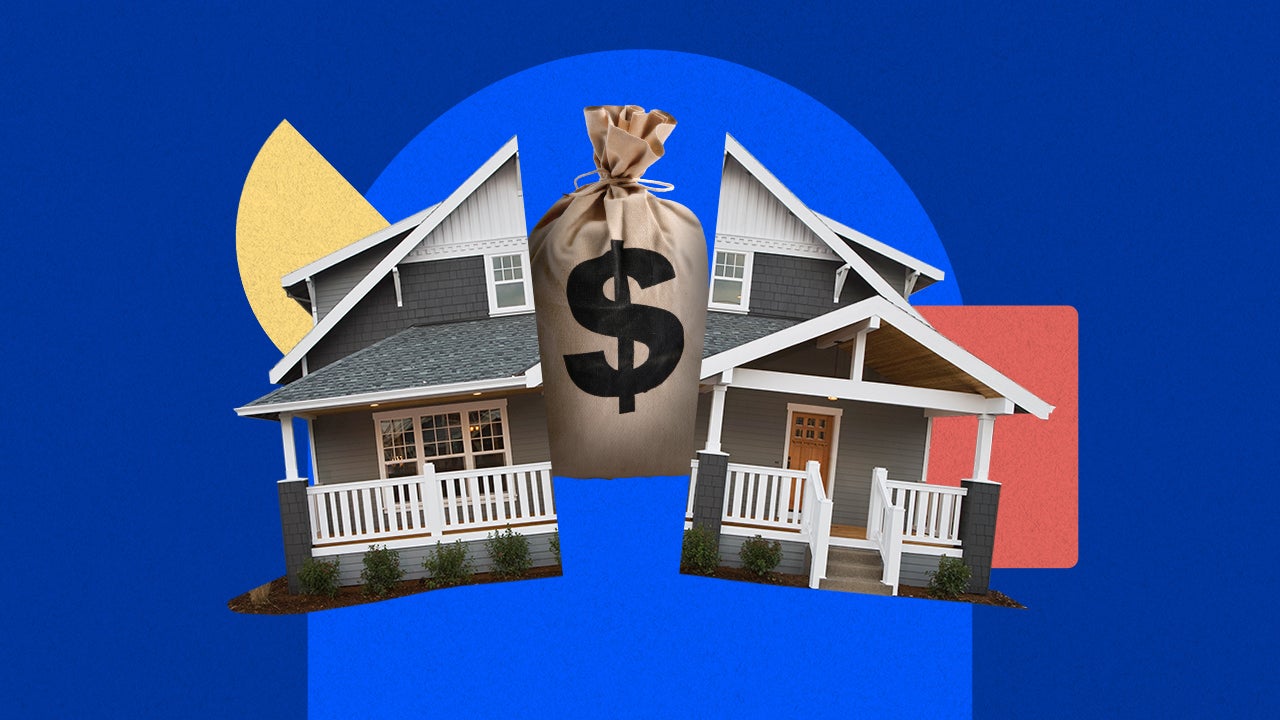Buying an Airbnb property for investing

Since its launch in 2008, Airbnb has changed the way people travel, welcoming short-term visitors into private homes around the world. At the same time, it has also created new ways for real estate investors to generate income. If you’ve been thinking about buying an Airbnb investment property, here are some things you should know.
Buying property as a real estate investment
Before investing in a piece of real estate, whether to use as an Airbnb or as a traditional rental, carefully consider how you’ll use the property. While the two options might seem similar on the surface, there are a few crucial differences — the biggest being short-term versus long-term tenants.
Even if buying a new Airbnb investment property isn’t in the cards right now, you could consider converting a portion of your existing home, such as a basement or garage, into a rental. If they’re permitted in your area, existing space might be converted into an accessory dwelling unit (ADU) for as little as $15,000.
Airbnb property vs. traditional rental property
Airbnb properties are typically booked by out-of-town visitors or business travelers on a nightly or weekly basis. “Short stays and quick turnarounds are key components of the Airbnb business model,” says Erik Wright, owner and CEO of New Horizon Home Buyers in Chattanooga, Tennessee.
Short-term rentals, including vacation properties, generally bring in higher profits than traditional rentals. That’s because the per-night pricing model lets owners charge more than they would for a conventional rental, where a tenant is locked into a year-long lease and pays rent monthly.
If you decide you’re ready to open up your home to Airbnb guests, the process is fairly simple. The company gives you the tools to schedule bookings and accept payments, which is faster and easier than the process of finding tenants on your own (like you’d do with a conventional rental).
The tradeoff is that you’ll likely have guests checking in and out frequently, which can create a lot of work for you as the owner or host. Between every stay, you’ll need to clean and restock the house and prepare it to welcome a new guest — often just a few hours after the previous one left.
In contrast, with traditional rental properties, tenants usually stay for a year or longer. While you’ll still need to cover routine maintenance on the home, you won’t have to think about constantly cleaning or greeting new guests. In addition, a long-term tenant provides more steady, reliable rental income (especially in a non-vacation destination that might have a very quiet off season).
Similarly, a long-term tenant who actually lives in your property is less likely to attract negative attention from your neighbors than a steady stream of strangers. No matter how quiet and well-behaved your Airbnb guests are, nearby residents might not appreciate the constant coming and going of new people.
Financing investment property vs. traditional home loans
Purchasing an investment property is a bit different than buying a primary residence. For example, government-insured loans like VA or FHA loans can’t be used to buy an investment property.
There are several ways to finance an investment property, though, including a specific investment property loan. However, you’ll need to meet some stringent criteria to get one: Most lenders will expect you to have a solid financial profile with a credit score of 700 or higher. These types of loans also require a larger down payment (at least 15 to 25 percent) than some traditional home loans, and they tend to come with higher interest rates as well.
Another option to consider is tapping into the home equity you’ve built in your primary residence. This can be done with a cash-out refinance, home equity line of credit (HELOC) or home equity loan. Make sure you’re aware of the risks before proceeding with this, though — for example, your home serves as collateral on a home equity loan, which means it is at risk if you can’t afford to make your payments for any reason.
What types of houses are good for Airbnb?
Location is probably the most important factor when buying a house to use as an Airbnb rental. You’ll see more demand and be able to charge higher rates if your property is in a tourism-friendly market.
“Houses in tourist areas or near popular attractions, such as beach towns, will typically attract more short-term renters than traditional rentals,” says Alex Capozzolo, co-founder of SD House Guys in San Diego.
Aside from location, amenities (like a pool, hot tub or view) can set your Airbnb apart from similar properties in the area. The condition of your home also makes a difference: “Houses with modern kitchens, updated bathrooms and comfortable furnishings tend to be more attractive to potential tenants,” Capozzolo says.
However, be aware that some areas have started to crack down on Airbnb and similar companies. In New York City, for example, hosts can’t rent out an entire home or apartment for less than 30 days, even if they own the building.
If you’re concerned about the day-to-day logistics of running an Airbnb, you could hire a property management firm to do it for you. These companies will handle everything from guest communication to professional cleaning to home maintenance, usually in exchange for a percentage of your booking cost.
Pros and cons of buying an Airbnb investment property
Pros
- Generate extra income. Short-term rentals can be extremely profitable, especially if your home is in a popular tourist destination.
- Find renters easily. You don’t need to advertise or market your property because Airbnb’s platform does it for you.
- Enjoy flexible rental terms. Airbnb allows you to block out certain dates if you want to use the property yourself, lend it to friends or family or just take a break.
Cons
- Hands-on management is required. With people checking in and out on a daily or weekly basis, there’s a lot of legwork needed, including communicating with guests, handing off the keys, cleaning and turning the property around for each new guest.
- Fees and operating costs. Airbnb does charge service fees for hosts. Between those and the costs of keeping your property well-maintained, the expenses can add up.
- High guest volume can mean more risk. As an Airbnb host, you can put a limit on the number of guests allowed to stay at once and request that they keep the noise down to avoid disturbing your neighbors — but there’s no guarantee that they’ll abide by these rules.
Bottom line
Buying an Airbnb property can be lucrative, but there are some things to consider before investing. For starters, be sure to research the laws and regulations about short-term rentals in your area, as some cities restrict or even prohibit them. In addition, be honest about whether you’re up for managing multiple bookings and hosting new guests on a frequent basis. If not, then investing in a traditional, long-term rental property might be a better fit.
Why we ask for feedback Your feedback helps us improve our content and services. It takes less than a minute to complete.
Your responses are anonymous and will only be used for improving our website.
You may also like

How to build wealth while renting





